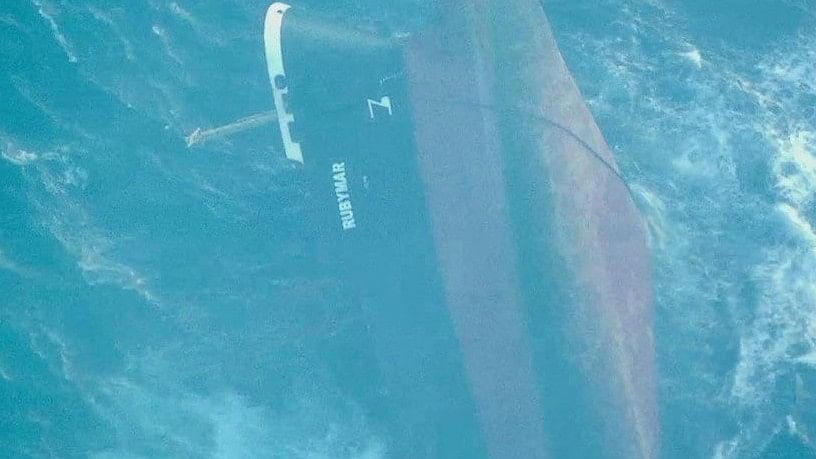
The UK-owned vessel Rubymar, which had sunk in the Red Sea after being struck by an anti-ship ballistic missile fired by Yemeni Houthi militants, is seen in this aerial view released on March 3, 2024.
Credit: US Central Command/Handout via Reuters Photo
By Alex Longley
India said the shipping industry needs to review the training being provided to armed guards because of an increased threat to commercial vessels from seaborne drones in the Red Sea.
After the Houthis sank a vessel with a waterborne explosive device last month, several other ships have faced similar threats. In two instances when armed guards fired at unmanned explosive-laden ships last week, the drone-boats ultimately exploded.
India’s Directorate General of Shipping said in a notice on its website that the recent spate of sea-drone attacks has raised the question of how effective some private security providers are.
The sinking of a bulk commodity carrier last month “underscores the need for a comprehensive review of security protocols and on-board armed security personnel qualifications to ensure they are commensurate with the evolving nature of maritime threats in high risk areas,” it said.